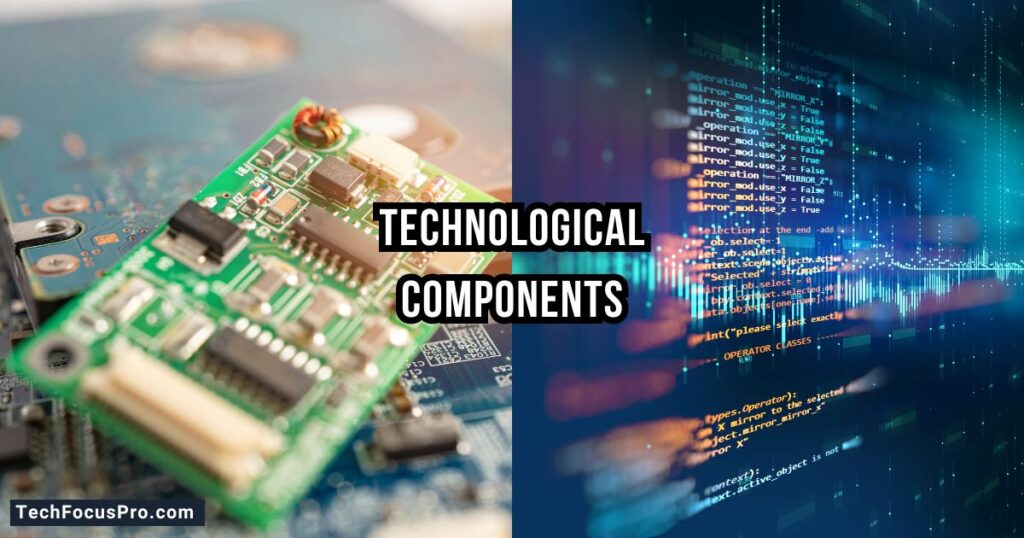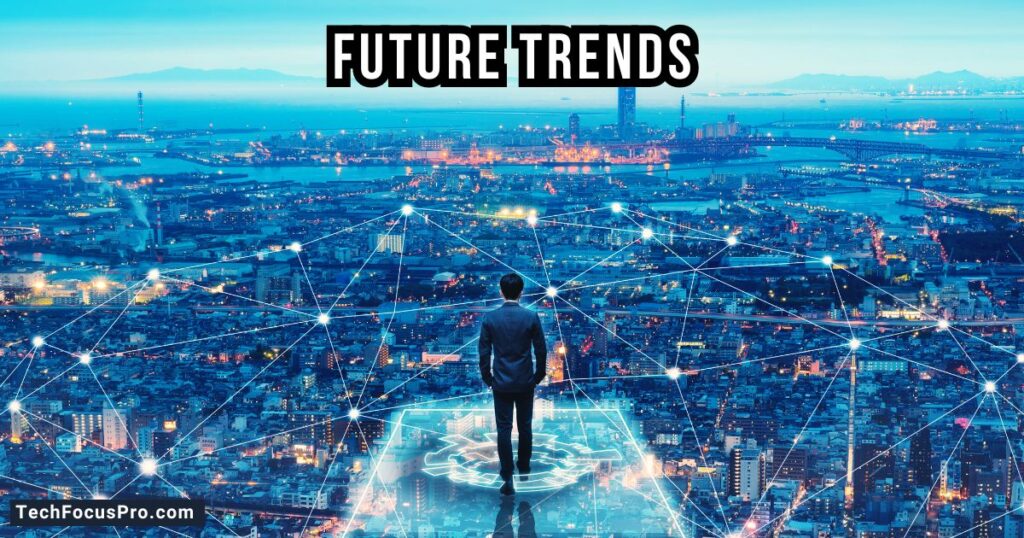
Applied Computer Technologies means using computers and software to solve real-world problems. It goes beyond knowing how a computer works. It’s about using that knowledge to make our daily lives simpler and more efficient.
These technologies have the capability to aid in tasks, enhance them, or even perform them autonomously. They encompass tools and programs we utilize on a daily basis to efficiently manage various activities.
Computers have found practical applications in various settings, such as healthcare. They play a crucial role in managing patient records and aiding in intricate surgeries with utmost precision.
Distance learning is made possible by technology, offering students and teachers access to digital resources. Furthermore, smart devices using computer technologies enable us to control lighting, climate, and security systems within the comforts of our own homes.
These examples demonstrate that computer technologies play a crucial role in various aspects of contemporary life, extending beyond the boundaries of offices or laboratories.
Importance of Applied Computer Technologies in Modern Society
The importance of applied computer technologies in modern society cannot be overstated. These technologies enable us to perform tasks with greater speed and accuracy, ultimately improving efficiency and fostering creativity.
Applied timelines are indispensable in addressing complex issues like global communication and climate change, as well as ensuring businesses remain competitive. The comforts and advancements we enjoy today are made possible thanks to their implementation.
In order to progress in the future and meet the ever-evolving demands of a global environment, it is essential to comprehend and utilize these technologies effectively.
Key Areas of Application

Healthcare
- Electronic Health Records (EHR): Computers help physicians and nurses track patient health data in the medical field. They keep digital records instead of paper ones, facilitating the safe and speedy updating and sharing of patient data.
- Telemedicine and Remote Patient Monitoring: Patients who live far from hospitals or have difficulty traveling can benefit from this practice, which involves doctors consulting patients via video chats. It also uses technology, like blood pressure or heart rate tracking, to remotely monitor patients’ health.
Finance
- Online Banking and Digital Payments: People can use computers to access and manage their bank accounts online. You don’t need to visit the bank to check your balance, transfer funds, or pay payments. Digital payments provide safe and easy money transfers to other people and online purchases.
- Fraud Detection and Prevention: Computer programs are used by banks and other financial organizations to identify unusual account behavior, which decreases the risk of fraud. These tools help detect and apprehend thieves who steal cash or private data.
Education
- E-learning Platforms: Students can learn using these online platforms from any location. Learning is flexible and accessible since it often involves courses, tests, and assignments that students can access on a computer or tablet.
- Virtual Classrooms and Resources: Virtual classrooms, which allow students and teachers to join online for live classes, are made possible by computer technologies. Resources like digital textbooks and educational videos are also available to support learning outside the traditional classroom setting.
Technological Components

Hardware
- Advanced Computing Devices: These powerful machines help perform complex tasks quickly and efficiently. Examples include high-speed computers, servers, and supercomputers. They are used in scientific research, weather forecasting, and data analysis.
- IoT Devices and Sensors: The Internet of Things is called IoT. It describes online gadgets that can exchange data and communicate with one another. These gadget’s sensors gather data from their surroundings—like movement or temperature—and transfer it to a computer for processing. Home security systems, fitness trackers, and smart thermostats are a few examples.
Software
- Artificial Intelligence (AI) and Machine Learning Algorithms: AI is a field of computer science that seeks to develop systems that can carry out activities that typically require human intelligence, like speech recognition and decision-making. A branch of artificial intelligence called machine learning trains computers to learn from data and improve over time. These devices assist in diagnosing illnesses and make movie and autonomous vehicle recommendations.
- Data Analytics Tools: These software applications help analyze and interpret data to make it worthwhile. They can take large amounts of complex information and break it into understandable insights. Businesses use data analytics to make better decisions, improve processes, and predict future trends.
Benefits of Applied Computer Technologies

By comprehending the advantages of applying computer technologies, we can acknowledge their ability to enhance various aspects of our lives. These technologies contribute to the streamlining of processes and the improvement of accessibility in the following ways:
Increased Efficiency
Computer technologies enhance efficiency and accuracy in various industries. In factories, computer-controlled machines can swiftly and consistently manufacture products such as automobiles or textiles, a task that was previously time-consuming when performed manually.
Office computers eliminate the need for employees to perform repetitive tasks such as data analysis and sending emails, allowing them to dedicate their time to more valuable work that requires human ingenuity and decision-making abilities.
Streamlining Processes Across Industries
Streamlining involves the process of simplifying and enhancing effectiveness. Computer technologies play a crucial role in improving work performance across various sectors such as manufacturing, shipping, and customer service.
One instance is when GPS navigation systems in vehicles offer drivers real-time updates, allowing them to avoid heavy traffic and reach their desired locations faster.
AI-powered chatbots can provide quick responses to commonly asked customer care questions, allowing human workers to focus on more complicated inquiries.
Improved Accessibility
The availability of computers has expanded access to crucial services and information for a larger population. Online platforms have made educational opportunities accessible to students residing in remote locations or facing other constraints that prevent them from attending school.
Likewise, digital libraries and resources offer individuals the opportunity to access an extensive assortment of books and educational materials without the need to physically visit a library.
Broader Access to Services and Information
With the internet, people can connect to various services, from banking to healthcare, from their smartphones or computers. This makes it easier for everyone, including those with disabilities or those living in rural areas, to access what they need without traveling far.
By offering flexibility and convenience, online services guarantee individuals the ability to swiftly access the necessary information or assistance.
Future Trends

Emerging Innovations
Impact of Quantum Computing:
Quantum computing harnesses the principles of quantum physics to accelerate information processing beyond the capabilities of traditional computers.
Google’s quantum computer, Sycamore, achieved a remarkable feat by solving a challenging problem in just 200 seconds, a task that would have taken the world’s fastest supercomputer around 10,000 years to accomplish. This groundbreaking technology has the potential to revolutionize fields such as cryptography and medicine, tackling problems that are too intricate for conventional computers.
Expansion of AI Applications:
Every day, the implementation of AI is expanding into a wider range of fields. Doctors are utilizing AI to aid in early disease diagnosis, farmers are benefiting from AI’s assistance in cultivating crops more efficiently, and self-driving cars rely on AI to navigate their routes. According to experts, the potential of AI extends to enhancing learning capabilities, minimizing accidents, and even contributing to mitigating climate change through optimized energy consumption.
According to a 2017 study conducted by McKinsey Global Institute, the global economy has the potential to be enhanced by $13 trillion by the year 2030 with the integration of AI.
Sustainability:
The concept of sustainability involves utilizing resources in a manner that does not harm the environment. With the help of computer technologies, we are discovering more efficient methods to reduce waste and conserve energy. One such example is the implementation of intelligent grids, which utilize computer systems to regulate electricity usage and minimize energy wastage.
A recent study conducted by the International Energy Agency reveals that investments in clean technology have the potential to lead to a significant 40% decrease in global CO2 emissions within the next two decades.
Energy-efficient Computing Solutions:
Energy-efficient computing refers to the practice of utilizing computers and digital devices in a manner that consumes less energy. This holds immense importance as it aids in reducing electricity expenses and decreasing the overall environmental footprint.
By following a statistic from the U.S. Department of Energy, it has been found that turning off your computer during the night can potentially save you up to $30 on your yearly electricity expenses. Additionally, the use of energy-efficient devices and computers aids in creating a more sustainable environment by reducing greenhouse gas emissions.
Conclusion
To sum up, we have witnessed how the utilization of computer technologies has made our lives easier by enhancing productivity and enabling improved access to services. We have explored advanced technologies such as artificial intelligence and quantum computing, which have the potential to greatly transform markets and tackle intricate issues.
As we gaze into the future, these technologies are poised to enhance further, unlocking greater possibilities for progress. Anticipate a time when computers seamlessly integrate into our everyday routines, empowering us to achieve our goals with heightened efficiency and sustainability. These advancements herald a multitude of opportunities to enhance the well-being of all individuals, promising a brighter future for everyone.
FAQs About Applied Computer Technologies
What are applied computer technologies?
Real-world applications of computer systems and software, known as applied computer technologies, aim to enhance productivity, streamline workflows, and enhance accessibility in different sectors.
By incorporating advanced computer functions, these technologies have revolutionized task execution across various industries such as manufacturing and healthcare.
How do computer technologies improve efficiency?
The utilization of computer technologies enhances productivity through the acceleration of data processing, eradication of manual errors, and automation of repetitive tasks.
By allowing robots to handle tasks that are less complex, human resources are liberated for more intricate jobs. Moreover, robots contribute to the consistent and efficient production of items, while also enhancing decision-making by swiftly analyzing accurate data.
What are applied computer skills?
The utilization of computer systems and software in a practical manner to perform specific tasks is known as applied computer skills.
People can perform daily tasks with greater efficiency thanks to these skills. They are crucial for effectively managing emails, creating documents, and utilizing spreadsheets, whether it be in a school, office, or business environment.
What are four examples of computer technology?
Here are four instances of computer technology:
- Smartphones: These are potent mini-computers that allow you to call, text, browse the internet, and use different apps.
- Laptops: You can use portable computers for writing, gaming, or even video conferencing from almost anywhere.
- Tablets: Similar to smartphones but larger, ideal for reading eBooks, watching videos, or drawing on-the-go.
- Wearables include smartwatches that track your fitness, monitor your health, and keep you connected.
What is the difference between CS and applied computer science?
The field of Computer Science (CS) encompasses the comprehensive understanding of computer systems, including their internal workings. It encompasses various aspects such as coding, software development, and gaining a deep comprehension of these systems.
Applied computer science, in contrast, revolves around the application of computer concepts to address tangible problems. Its primary aim is to utilize computer knowledge in real-life situations spanning different sectors such as business, healthcare, and education.








